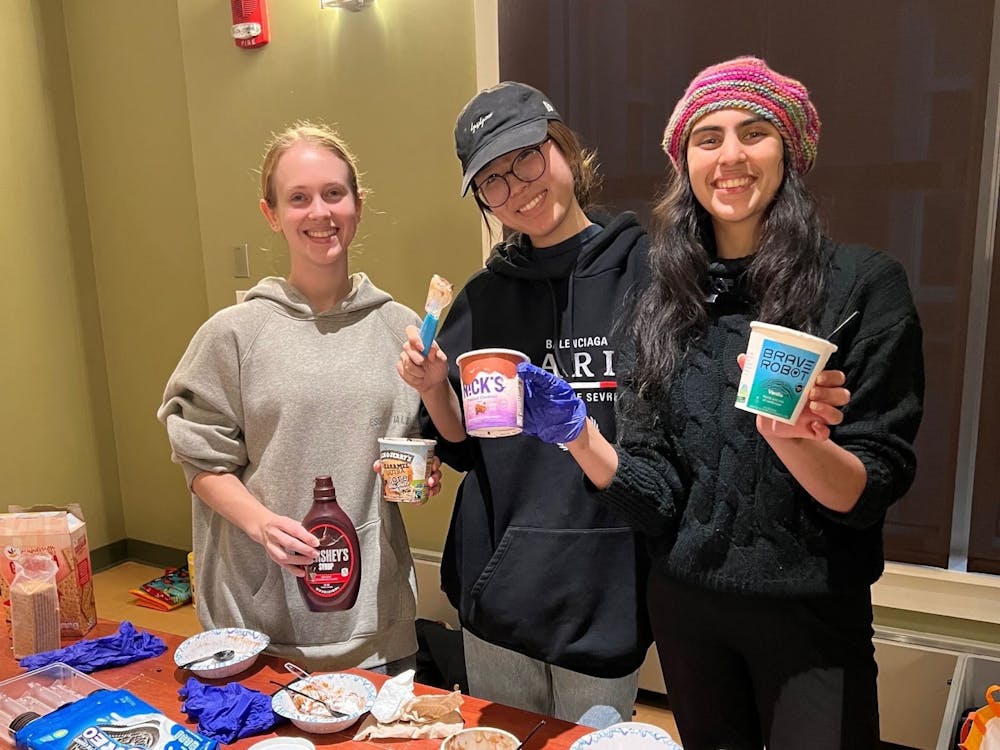The Alternative Protein Project at Hopkins (Alt. Protein Project) is a chapter of the Good Food Institute (GFI), a global organization primarily driven by university students interested in alternatives to animal-based food products. At Hopkins, the student group strives to build a community through education, research and entrepreneurship.
Over the past year, the Alt. Protein Project hosted social events on campus and guest panels and lectures with speakers, ranging from the Hopkins faculty and alumni to alternative food companies. Along with other chapters of GFI, the organization taught summer courses to people interested in alternative protein.
Until now, most of the group’s events have been held online through webinars or online platforms. In an interview with The News-Letter, co-founder Lauren Blake, a 7th-year PhD student in the Biophysics department, noted that the Alt. Protein Project is planning for more in-person events this semester as COVID-19 restrictions ease.
One of the Alt. Protein Project’s main objectives is educating the Hopkins community about alternative protein. According to Blake, many people have never heard of alternative protein as the field is relatively new.
In an interview with The News-Letter, junior and Co-President Emily Yao explained the importance of alternative protein.
“I feel like [alternative protein] is the next agricultural revolution,“ she said. “We are innovating new ways to produce food, which hasn’t been done in hundreds of years.”
As well as enhancing awareness, the organization’s education program aims to inspire students to acknowledge the potential of the alternative protein field. The Alt. Protein Project encourages students to consider alternative protein as a possible career path or senior project topic.
“The alternative protein field is a practical solution for real-world problems like climate change, public health, world hunger and animal cruelty,” she said. “There’s a lot of benefits, and the growth has been huge in recent years in this field.”
Blake added that alternative proteins can provide a solution for antibiotic resistance and zoonotic diseases, issues gaining attention after the COVID-19 pandemic.
“Most antibiotics are used in the animal industry — over 70%,” she said. “But we need those ourselves as humans in case we get bacterial infections. It’s likely that if we keep using animals as our primary food as our main protein source, we're going to continue to have more epidemics and pandemics.”
According to Yao, one of her favorite parts of being in the Alt. Protein Project is that she can work with students from different majors, from Philosophy to Chemical Engineering. She believes that the field is interdisciplinary, tying in public health, bioethics and engineering together.
She also pointed out that despite being a leading research university, Hopkins lacks resources for students to explore alternative protein.
“At Hopkins, we’re a number one research university, but we have no projects on alternative protein,“ she said.
The first course on alternative protein was established this fall, but the one-credit class is only open to upperclassmen and graduate students.
Moving forward, the Alt. Protein Project aspires to establish diverse alternative protein courses. In addition, they want to start research projects in individual labs at Hopkins that focus specifically on alternative protein. To execute these plans, Blake emphasized that faculty support is crucial.
“We’re now trying to convince professors to get research projects underway. I feel like the student movement is powerful on its own, but it’s even more powerful when we have faculty support,” she said.
Blake also noted that organization is willing to collaborate on initiatives related to alternative protein with other students or student groups.
According to Yao, interested students can reach out through email, social media or visit their public bi-weekly executive meetings.
In an email to The News-Letter, junior Sanchit Sanyal, a member of the Alt. Protein Project, highlighted the many benefits of getting involved in the organization.
“I have enjoyed learning about and helping build a comprehensive curriculum on cultivated meats, networking with Hopkins alumni and alternative protein industry leaders, as well as getting to attend fun social events at plant-forward restaurants and potlucks,” he wrote.





